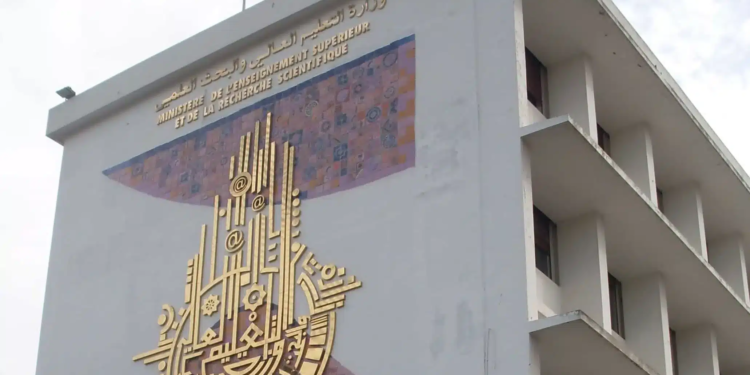Gathered in plenary, the deputies scrutinized the 2026 budget of the Ministry of Higher Education, marked by a moderate increase but by a massive effort devoted to university hostels. Elected officials insisted on the urgency of expanding reception capacity in the face of a rapidly growing student population. Infrastructure projects constitute the most scrutinized point of this mission.
The Assembly of People’s Representatives and the National Council of Regions and Districts began reviewing the Ministry of Higher Education’s budget for 2026 on Monday.
The project, up 3.47%, includes an ambitious program to extend university residences. Elected officials focused the debate on the growing pressure on student housing and on the real capacity of the ministry to complete its projects.
A rising budget marked by the urgency of student housing
The 2026 budget reaches 2,397 million dinars (MD), or 85,787 MD more than last year. It is distributed between four major programs, including 477,476 MD dedicated to university services, a component which includes hostels and restaurants.
The ministry presented a roadmap focused on infrastructure: 144 projects are currently underway, between maintenance, modernization and expansion of establishments.
The issue of student housing dominated the session. University hostels have suffered for years from insufficient capacity, accentuated by the increase in the number of enrollees.
To respond, the ministry is planning around 7,000 additional beds in projects already underway, to which are added 1,200 new beds included in the 2026 budget.
University services remain a central issue in a landscape which includes 324,000 students, 175 university residences and 84 restaurants for the year 2024-2025.
Parliamentarians questioned the ministry on deadlines, regional distribution of projects and monitoring mechanisms to avoid chronic delays observed in previous years.
Between support, vigilance and concerns
MEPs welcomed the increase in funding for university services, saying it responds to a pressing social demand. Others expressed reservations about the ministry’s ability to deliver the announced projects, recalling the delays accumulated in several governorates.
Some elected officials insisted on the need for a more equitable distribution of new homes, particularly in inland regions where supervision rates remain lower. Others pointed to the pressure on university restaurants, which welcome a growing number of students without a significant increase in their resources.
The ministry, for its part, affirmed that improving living conditions on campuses constitutes a strategic priority, recalling that university structures today exceed 40,606 agents, including 22,297 teachers and researchers.
A university system under pressure
Tunisia has 13 universities, 209 public higher education and research establishments and 544 research structures. The steady growth in the number of students – combined with the increase in the cost of living – puts permanent pressure on university hostels, which are often saturated and aging.
For several years, student unions, regional management and municipalities have been warning about accommodation conditions, maintenance problems and the lack of available places. The 2026 budget is therefore part of a catch-up dynamic, but remains faced with financing, execution and governance challenges.
Read also








